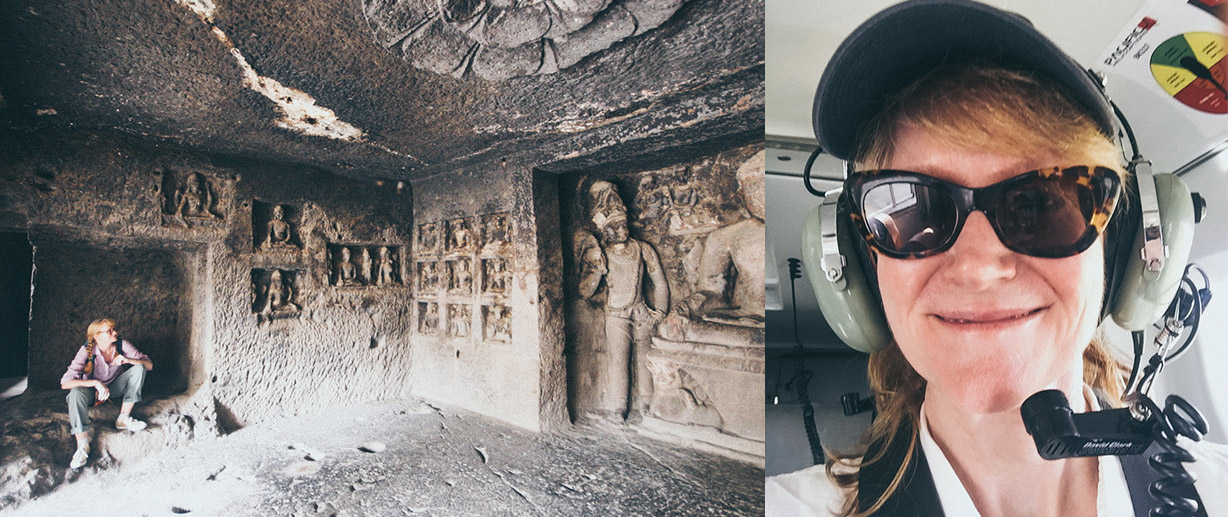By Robert W. Dalton
A year ago, Dr. Paige West ’91 found herself marooned in New York City. The raging COVID-19 pandemic prevented her from traveling to Papua New Guinea, as she had done for 25 years, to conduct ethnographic research.
West, the Claire Tow Professor of Anthropology at Barnard College and director of the Center for the Study of Social Difference at Columbia University, used the time to complete the application process for a Guggenheim Fellowship. It was her first time applying, and the process is competitive.
“It gave me something to hold onto as I felt like things were falling apart,” West says.
She learned in April that she had earned one of the prestigious fellowships.
“I really thought I didn’t have a chance,” West says. “I thought just making it through the first round was a big deal. When I got the email (telling her she had been awarded a fellowship), I may have stood up and screamed and scared my husband and our cats.”
The Guggenheim Foundation awards about 175 fellowships each year. It receives about 3,000 applications annually. Fellowships are awarded through two competitions — one for citizens and permanent residents of the United States and Canada, and the other for citizens and permanent residents of Latin America and the Caribbean.
“I am honored beyond words to be included in such an incredible group of fellows,” West says. “I’m excited about the work that I will do with that grant, telling a story of climate change that resonates with people who know places intimately and how they change their lives daily in respect to climate change.”
She will tell those stories in “Aunty: A Prayer for the World,” a book based on her years of research. In the book she will chronicle the experiences of diverse people in diverse locations — from Papua New Guinea to India to New York and Georgia.
“People everywhere have different knowledge-making practices,” West says. “The New York City chapter is about feral cats and rats, but there are opossums and racoons in there, too. Most people think about rats and pigeons; they don’t think about feral cats and the people who take care of them. People make knowledge about these animals through experience, but also through scientific processes.”
The Guggenheim Fellowship is the second major honor for West this year. In February she was among the honorees in the Explorers Club’s inaugural EC 50 program, which recognizes 50 explorers who are changing the world. She's one of 21 women named to the list. More than 400 explorers were nominated from more than 50 countries.
Because of a spike of COVID-19 cases in Papua New Guinea, West will spend a second straight summer at home. Her research will go on, however, because of her partnerships with the indigenous people of Papua New Guinea.
